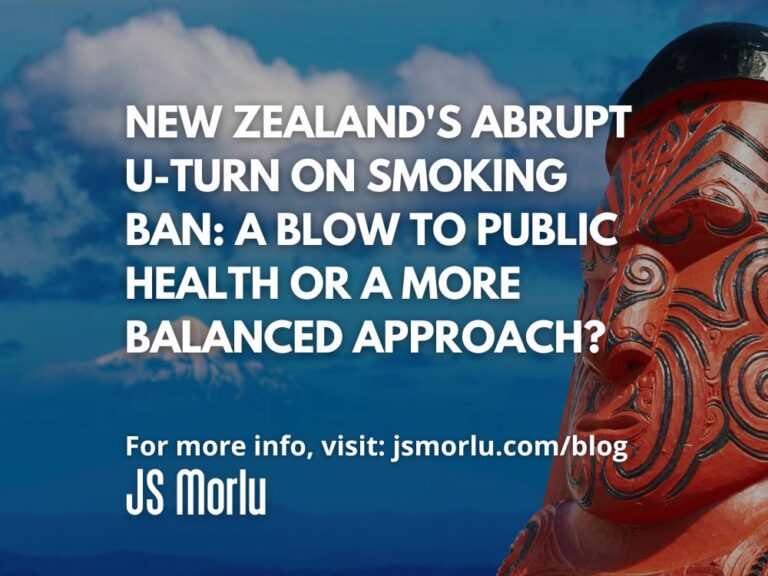New Zealand’s bold smoking ban, once hailed as a groundbreaking step towards a smoke-free future, has met a sudden and controversial end. In a decision reverberating across the globe, the newly elected government led by Prime Minister Chris Luxon has chosen to repeal the landmark legislation, igniting fierce debate and leaving public health experts aghast.
The smoking ban, introduced just a year ago, was a world-first initiative designed to prevent future generations from taking up the habit. Under its provisions, anyone born after January 1, 2009 would be denied the legal purchase of tobacco products. This ambitious smoking ban promised significant reductions in smoking rates, particularly among young adults, and attracted international acclaim for its unwavering commitment to public health.
However, Prime Minister Luxon, at the helm of a coalition government, paints a different picture. While acknowledging the positive intentions behind the smoking ban, he expresses concerns about its potential for unintended consequences. Citing fears of a burgeoning black market and the need for a more balanced approach, the government opted to scrap the legislation.

This reversal has understandably met with a firestorm of criticism. Former health minister Ayeshea Verrall, a staunch advocate for the smoking ban, lambasted the decision, accusing the government of prioritizing economic interests over the well-being of its citizens. Public health groups like the Health Coalition Aotearoa echoed similar concerns, highlighting the detrimental impact this will have on the nation’s health and accusing the government of capitulating to the tobacco industry.
Finance minister Nicola Willis, justifying the repeal, pointed to the revenue generated from cigarette sales as a valuable source for tax cuts. However, this economic argument fails to resonate with critics who emphasize the long-term cost of increased smoking rates, including a potential burden on the healthcare system and a loss of lives prematurely cut short.
The fallout from this decision extends beyond New Zealand’s borders. Public health experts across the globe raise concerns about the ripple effect this may have on similar smoking ban initiatives elsewhere. The delicate balance between economic considerations and public health priorities takes center stage, prompting introspection and renewed debate.
While the government assures its commitment to reducing tobacco use, its proposed alternative strategies involving education programs and promoting vapes as cessation tools face skepticism. Critics point to the lack of conclusive evidence on the effectiveness of these methods in curbing smoking, particularly among younger demographics.

New Zealand’s sudden smoking ban reversal serves as a stark reminder of the ongoing struggle between public health imperatives and economic interests. As the nation grapples with the ramifications of this decision, the world watches with keen interest, awaiting answers to crucial questions: Will this set a precedent for similar backsliding on smoking bans globally? Can alternative strategies effectively counteract the potential rise in smoking rates? And most importantly, will the pursuit of economic gains come at the cost of human lives?
The fight for a smoke-free future, it seems, remains far from over. New Zealand’s abrupt smoking ban U-turn has undoubtedly dealt a blow to public health, but it has also reignited the global conversation about prioritizing the well-being of our citizens over short-term economic gains. As the debate continues, the hope remains that reason and evidence will prevail, guiding policymakers towards effective and sustainable solutions that truly prioritize the health and well-being of generations to come.
JS Morlu LLC is a top-tier accounting firm based in Woodbridge, Virginia, with a team of highly experienced and qualified CPAs and business advisors. We are dedicated to providing comprehensive accounting, tax, and business advisory services to clients throughout the Washington, D.C. Metro Area and the surrounding regions. With over a decade of experience, we have cultivated a deep understanding of our clients’ needs and aspirations. We recognize that our clients seek more than just value-added accounting services; they seek a trusted partner who can guide them towards achieving their business goals and personal financial well-being.
Talk to us || What our clients says about us


